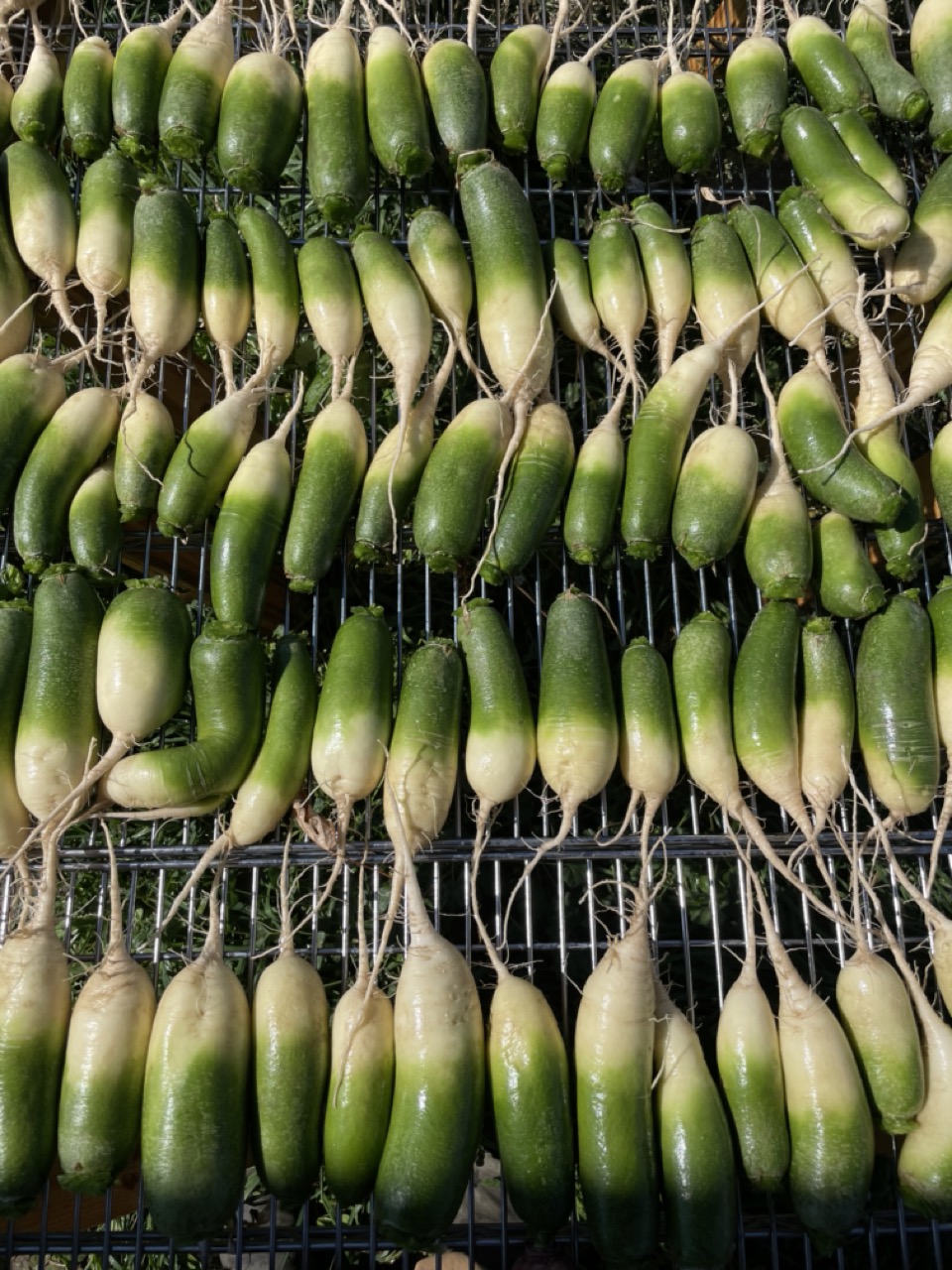
Green Luobo Radish
The Groundwork farm just planted our first biennial seed crops into the fields, including Green Luobo radish and Colorado Sweet #6 storage onion.
Biennial crops are seed crops that require two years to complete their life cycle. This is compared to annuals that reproduce in one year and perennials that live and reproduce for many years. The first year of growth is mainly vegetative (leaves, roots and stems) while the second year of growth is mainly reproductive (flowers and seeds). Biennials require a process called vernalization, which is a period of cold exposure that makes sure plants are flowering in the correct season. Nature created its own vernalization process called winter! Seed growers mimic this vernalization process by storing biennial seed crops either in the ground or in a cold, dark indoor space. Many gardeners and eaters don’t know that some of their most beloved crops are biennials and require vernalization including most root crops (carrots, beets, onions and turnip), brassicas (broccoli, cabbage, brussel sprout, kale, ect) and some flowers (hollyhock and black eyed susan).
Radishes (Raphanus sativus) were first domesticated as early as 500 B.C. in Southeast Asia, with multiple secondary domestication events in Central Asia, Central China, and India. This cool season root vegetable has become a staple of many Asian cultures and cuisine, before spreading to Europe and eventually the Americas. Radish varieties are easy to grow and used as food crops, cover crops, forage crops, and even as seed oil crops in certain regions of the world.
For the past two years, our farm has fallen in love with a storage radish called Green Luobo. This green and white daikon-style radish has become a consistent presence in our fall/winter production. Large 8-10 inch roots are common, with some weighing multiple pounds. Out of all the winter radishes we grow, Green Luobo has stored consistently for over 6 months, and continues to provide fresh, crisp nourishment into April. We are growing Green Luobo seed for our local Paonia seed company, High Desert Seed, and if all goes well, it will be available for next year.